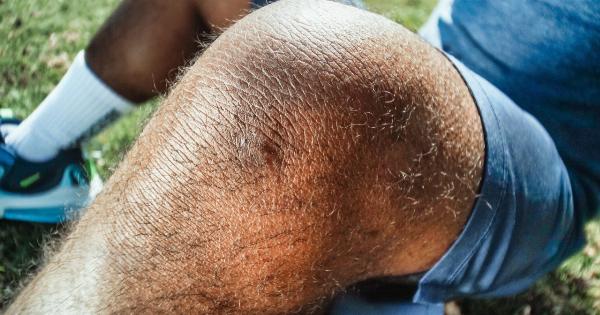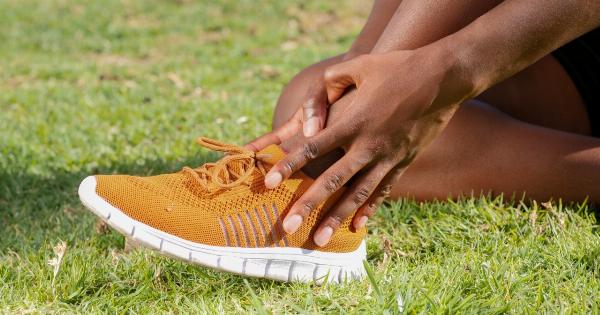Arthritis is a common joint disorder that affects millions of people worldwide. It can cause pain, swelling, and stiffness in various joints, including the knees.
Knee arthritis is particularly debilitating as it can significantly impact mobility and quality of life. If you experience any of the following signs, it may be an indication that you have knee arthritis:.
1. Persistent Knee Pain
One of the primary symptoms of knee arthritis is persistent knee pain. This pain is often characterized as a dull ache or a sharp, stabbing sensation deep within the joint.
The pain may come and go initially but tends to worsen over time as the arthritis progresses. It may be particularly intense after periods of inactivity or excessive use of the knee joint.
2. Swelling and Inflammation
Knee arthritis can lead to swelling and inflammation in the affected joint. The swelling may be mild in the early stages but can progress to significant joint enlargement as the disease advances. The knee may appear puffy and feel warm to the touch.
In some cases, the swelling may fluctuate, depending on the level of activity or time of day.
3. Stiffness and Limited Range of Motion
Arthritis can cause stiffness and a reduced range of motion in the knee joint. You may notice that it becomes more challenging to bend or straighten your knee fully.
This stiffness is generally more pronounced in the mornings or after prolonged periods of inactivity, such as sitting for extended periods or upon waking up.
4. Joint Instability
Knee arthritis can compromise the stability of the joint, making it feel wobbly or unstable. You may experience a sensation that your knee is giving way or buckling under the pressure.
This instability can significantly affect your ability to walk, climb stairs, or engage in physical activities that require balance and coordination.
5. Popping or Grinding Sensations
If you have knee arthritis, you may occasionally experience popping or grinding sensations within the joint. These sensations, also known as crepitus, can be caused by the roughening of the cartilage or the formation of bone spurs within the knee.
Crepitus is typically more noticeable when bending or straightening the knee.
6. Muscle Weakness
Arthritis can lead to muscle weakness in the surrounding thigh and calf muscles. The weakness may result from reduced physical activity due to knee pain or may be a direct consequence of the disease.
Muscle weakness further contributes to the instability of the joint and may make walking or standing for extended periods more challenging.
7. Decreased Quality of Life
Knee arthritis can significantly impact your quality of life. The persistent pain, limited mobility, and the inability to engage in activities you once enjoyed can take a toll on your physical and emotional well-being.
The chronic pain may disturb your sleep patterns and lead to mood changes, such as irritability, anxiety, or even depression. If left untreated, knee arthritis can affect your overall quality of life.
8. Morning Stiffness
People with knee arthritis often experience morning stiffness, which can make it difficult to get out of bed or start the day. The stiffness typically eases with gentle movement or as the day progresses.
Morning stiffness is a classic symptom of various types of arthritis, including knee arthritis.
9. Difficulty Climbing Stairs
Knee arthritis can make climbing stairs a challenging and painful task. The pressure exerted on the knees while ascending or descending stairs exacerbates the pain and can further limit your mobility.
If you notice that you struggle with stairs more than usual, it may be an indicator of knee arthritis.
10. Limited Knee Functionality
As knee arthritis progresses, the functionality of the affected knee may be significantly compromised. You may find it increasingly difficult to perform basic activities like squatting, kneeling, or getting up from a seated position.
This limitation in knee functionality can further restrict your mobility and independence.
Conclusion
If you experience persistent knee pain, swelling, stiffness, or any of the other signs mentioned above, it is essential to consult a healthcare professional for an accurate diagnosis.
Early detection and appropriate treatment can help manage knee arthritis effectively, reduce pain, and improve your overall quality of life.




























